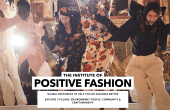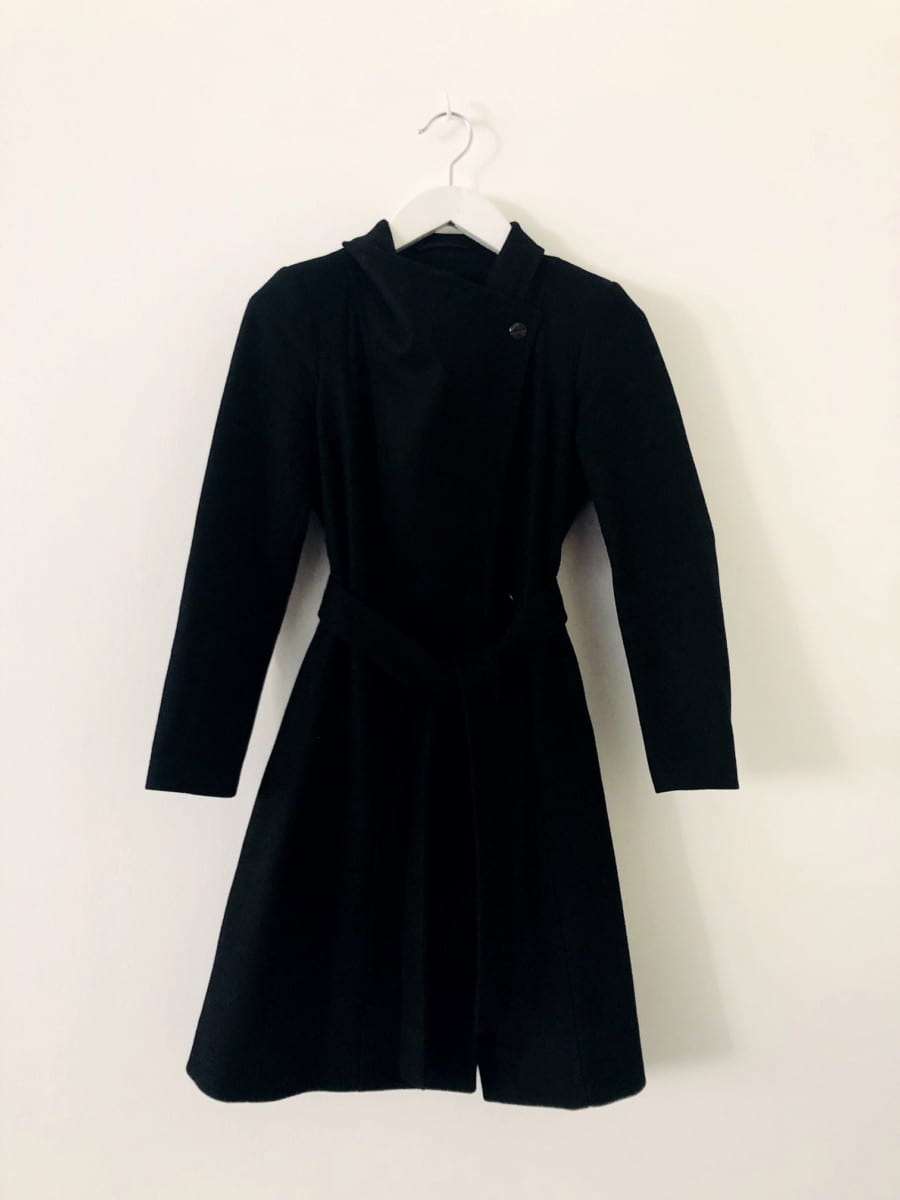Jane Petrie has been working as a costume designer for over fifteen years. Working on a number of high profile projects, Jane’s film credits include ‘Moon’, ‘Fish Tank’, ‘Suffragette’, starring Carey Mulligan and Meryl Streep, and most recently, ‘Genius’ with Nicole Kidman, Jude Law and Colin Firth.
I spoke to her about her route into costume design, the challenges she faced and the advice she would give to students now.
How did you get into costume design? What inspired you?
Well, I didn’t even know that the job existed until I was 21. I left school when I was 16 to do a portfolio course for art college, but I ended up just doing course after course, not really knowing what to do with them. I knew I wanted to do fashion, but I just wasn’t sure what I could do.
I had moved down to London and was selling hats in Camden, things like that. I’d had an interest in period clothing all my life and I’d always done projects about it at school. If I was given the opportunity to choose a subject it would always be the history of clothing.
One night in 1989 I was watching ‘The Clothes Show’ and they mentioned Wimbledon School of Art’s costume course. I had no idea that sort of job even existed, but I decided there and then, that it was exactly what I wanted to do. I applied and got in that year and that was it! If I had known it existed all my school life I would have knuckled down and done it immediately. I just don’t think anybody knew about it, even the careers advisors couldn’t have suggested it to me.

‘Suffragette’. Image via Jane Petrie
Do you think this is still the case now, or are more people aware that this is a route you can go down?
I don’t know, I hope so. I do try to do as much as I can with things like Arts Emergency, schools and colleges to get the subject out there more, especially because it was nearly a missed opportunity for me.
Do you think the role of a costume designer has evolved over the years you’ve been working?
It’s probably a bit heavier on management than it once was. It depends on the size of the film of course, but when I left college they had just broken up the BBC and a lot more people were freelance than had previously been. People were coming out of institutions or film studios where there was already management or a structure that you would work within. But being freelance you have to take on more of the management and you have to set up fresh every job now, that’s the main difference.
Are there any differences between working in different forms of media?
Theatre is different but film and TV are pretty similar. The biggest difference is speed, TV is really, really quick. But, it doesn’t really matter what the media is, it all depends on the script, as long as that’s good, I wouldn’t turn anything down.

‘Moon’. Image via Jane Petrie
What’s been the most interesting project you’ve worked on?
I think I‘ve been really lucky in that I’ve enjoyed most jobs I’ve done. I did enjoy working on ‘Moon’; I like it when you invent a world – in a way you always have to do that – you always have to find the world you’re working within. Even if it’s contemporary London, you’d still have to work out what story you’re telling, but Moon was something completely new. The fact that my career has been so varied has helped. I haven’t done too much of anything and I’ve moved on to new things each time, which has made things enjoyable.
How do you begin the research process for each project?
I start with my instincts from the script. I usually read the script then I get an instinct of what I am trying to look for. I often start online because it’s easy – I will get emailed the script then start rummaging around online, but there’s a whole load out there that is beyond internet research, it usually just gets you up and running.
I’ll watch some films and early footage if its period, and I’ve got a lot of books I can read through. I love collecting books and I still make scrapbooks with pictures of stuff I collect along the way, a physical Pinterest I suppose.
How do you source the clothes?
It depends again on the script. If it’s period then I’ll work out which costume houses I want to use, what I want to rent, and what I might have to make. If it’s contemporary then I usually shop where the characters would shop. For example we did ‘Fish Tank’, so I went to Romford as that’s where it’s set and I did all the costume shopping there to make it more real – I just try to be as authentic as I can and as true to the script as possible.

‘Fish Tank’. Image via Jane Petrie
Are there any particular periods you’ve enjoyed working on?
I’ve just done 1930’s America for a film called ‘Genius’ that hasn’t come out yet, which I thoroughly enjoyed. I liked doing that sort of period because I had done quite a lot of contemporary in a row and it was fresh. You don’t want to get stuck in one world.
But I enjoyed ‘Suffragette’, it was really nice to work on. Almost everything in the film is original 100 year-old clothing. I think this is almost as early as you can go in order to be able to do that. There’s quite a lot of 1880s stock, you might be able to do 80s 90s, but after that it starts to get tricky. With ‘Suffragette’, it was focussing on quite a poor community, so I was able to use a lot of knackered old stock, it didn’t need to be in really good condition, which helped. I tried to use original clothing as much as possible. You can’t even buy by the cloth now so it’s really hard to recreate it. If I decide to use as much original as possible, then I will make as little as possible because it becomes it bit obvious what the makes are. You have to be really careful that you’ve not got some characters looking like they’re on some kind of satellite production compared to everyone else!
How challenging is the making side of it? Do you get involved?
I know how to make and the LCF course is brilliant actually for that because the students learn the practical side of it as well as design. That is what has helped me enormously on low budget projects, that I can do stuff myself. And, I also understand what I’m asking the workroom to do, so I can communicate quite clearly with the makers. I really like that side of the job very much and I did a lot of making when I first left college. I’m happy in a workroom, I feel quite at home there.

‘Genius’. Image via EW
What are the main skills do you think a student graduating now will need to enter the industry?
You really should have basic sewing skills. If somebody said to you ‘quickly alter those trousers’ or ‘take that hem up’ you should be confident with basic alterations – and quick.
Most importantly though, you should know how to work. I always say this, don’t undervalue pub or waitressing jobs. If you’ve never had a job before in your life it’s going to be quite shocking, suddenly doing 14 hour days and working really hard. You need to actually learn how to work regardless of what the job is, if you’ve never had a Saturday job it can be quite a jolt.
Management is important but you can learn that as you go, you take on more responsibility with each step up in the department. I think you have to be open to delegating, sharing the work, budgeting, paperwork and schedules. Obviously the bigger the budget of the film the more people you’ll have in your team who can take those sorts of things on, but you really need a good understanding of it all.
What advice would you give to a student today?
Learn everything. Keep learning. Keep making. The best thing I did – and members of my team who have done this tend to fly up the ladder really quickly – was a stretch of touring theatre wardrobe. It’s amazing. You do a couple of tours and you are organized, tidy and methodical. You can’t leave things behind, you can’t forget something, it has to come with you from theatre to theatre, twice a week. Your wardrobe skills and your basic day-to-day management and maintenance of costumes is so tight after a theatre tour that then when you go and get a job as a trainee on a film, you fly. If you’ve got good fast efficient wardrobe skills, you’ll move quickly.

Suffragette sashes from Toye Kenning and Spencer
Is there anything you are working on at the moment?
I am just wrapping a film up, called War Machine directed by David Michod, staring Brad Pitt. It’s a military satire on the war in Afghanistan.
That must be really different, you must have had to find the military uniforms?
I had to get all of the coalition forces uniform, plus costume for the local Afghan people and learn how they dress. (That sounds challenging) It’s been good actually, it’s a whole new world to learn, but the local dress balances out the military side of it quite nicely. With military you have to read it, learn it, do it and get it right; it has to be accurate. But with all the local people living around the military there’s much more to explore, it’s a new world to me, but I thoroughly enjoyed it.
Finally, just how close do you get to Brad Pitt?
Quite close! I have done some fittings with him, he’s really nice actually, good to work with.
You can see more of Jane’s work on her website and her latest films, ‘Suffragette’ and ‘The Program’ are in cinemas now, with ‘Genius’ and ‘War Machine’ due to be released next year.




